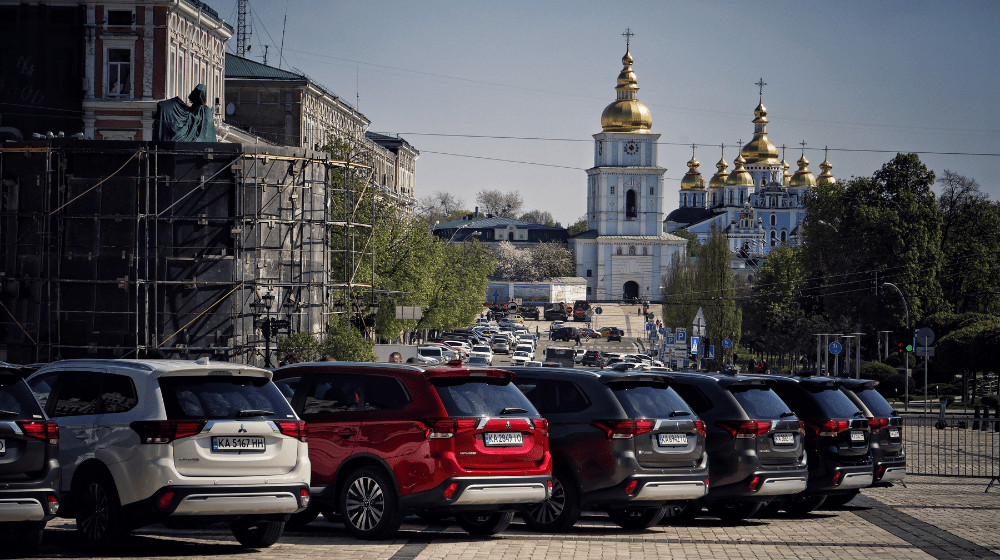Today, the UN Population Fund (UNFPA) handed over 60 vehicles donated by the U.S. Government through the U.S. Agency for International Development (USAID), with support from the Government of Ukraine, to local partners during an event in Kyiv. These vehicles will help UNFPA-supported psychosocial support (PSS) mobile teams to continue providing critical support to survivors of gender-based violence (GBV) and domestic violence in all regions of the country.
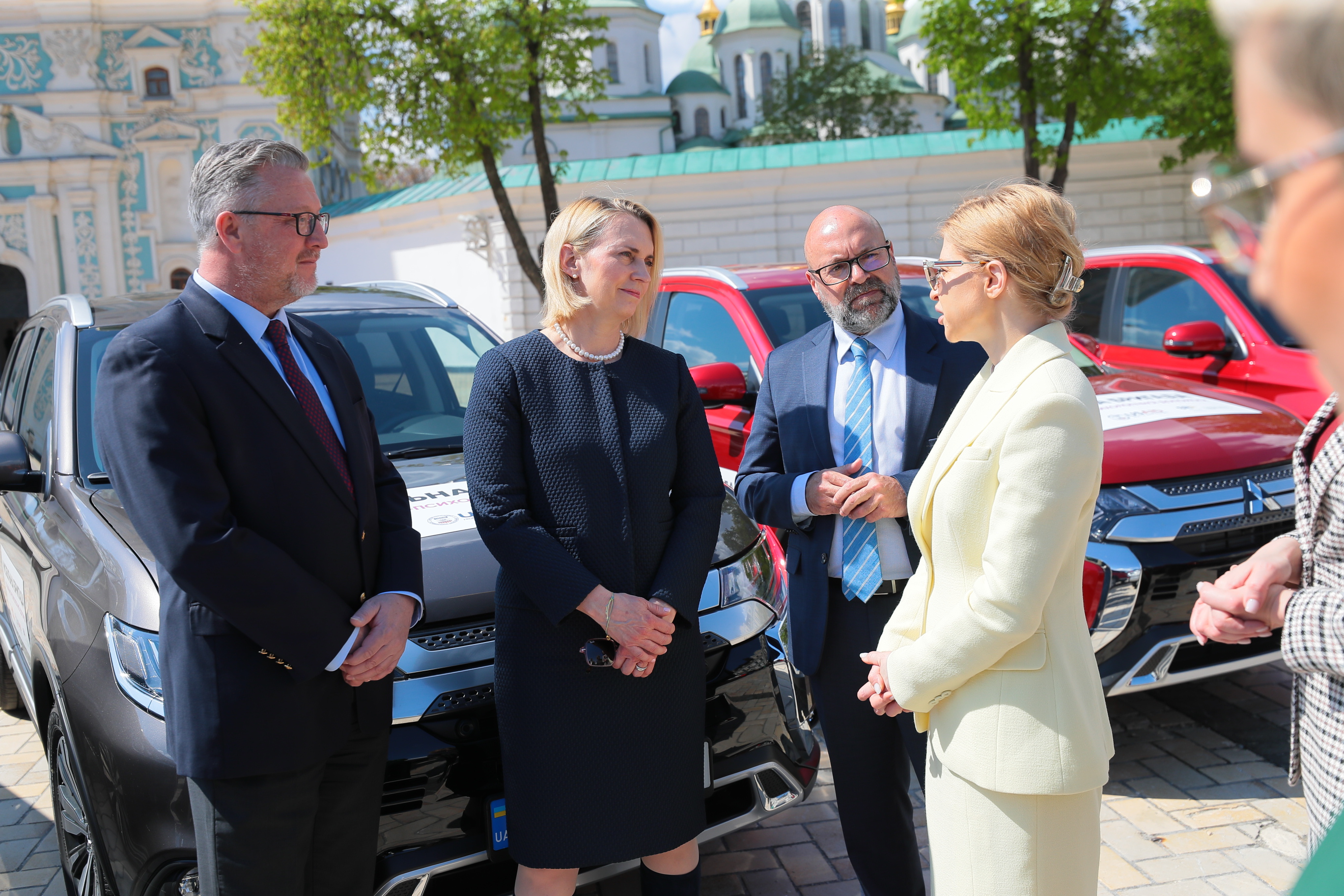
Across Ukraine, 100 PSS mobile teams currently provide free social and psychological assistance to GBV survivors and, if necessary, refer them to other specialized services. The PSS mobile teams can reach people in need of support, including in remote and hard-to-reach areas near the front lines in eastern and southern Ukraine, and transport domestic violence and GBV survivors to receive care and services. In addition, mobile teams carry out awareness-raising and education activities such as providing information on rights, available services and referrals, and confidential and survivor-centered support options. As of April, they have responded to more than 90,000 requests for assistance, including those related to cases of domestic violence and GBV.
“With the onset of full-scale war, the level of gender-based violence also increased. That is why we are working to ensure that every survivor has access to quality, free services organized and deployed according to their needs. We are grateful to the US government, the Office of the Vice Prime Minister for European and Euro-Atlantic Integration, the Ministry of Social Policy, local authorities and organizations for their unwavering support to this work. With these 60 vehicles, specialists will be able to reach out and deploy, quickly and efficiently, a broad range of services to everyone who needs them”, said Jaime Nadal, Representative of UNFPA, the United Nations Population Fund, in Ukraine.
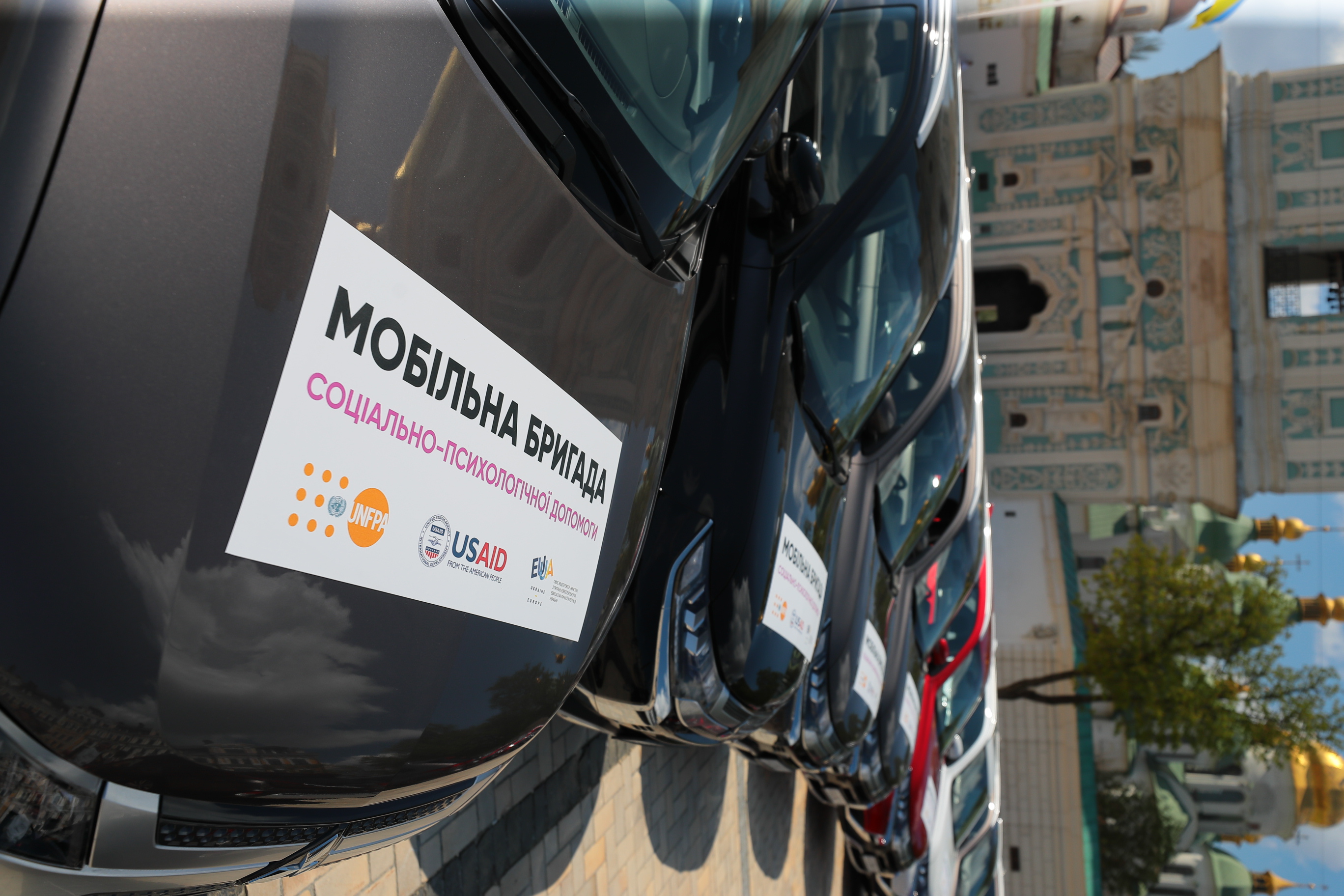
With support from UNFPA, PSS mobile teams work in coordination with the Office of the Deputy Prime Minister for European and Euro-Atlantic Integration and the Ministry of Social Policy. USAID also supports UNFPA and PSS mobile teams, as well as the organization’s other specialized services for survivors of GBV and conflict-related sexual violence, such as case management, crisis hotlines, provision of dignity kits, and other survivor support services.
“Russia’s war against Ukraine has created a humanitarian catastrophe for millions of Ukrainian women and girls. The U.S. government has responded to the urgent humanitarian needs of those affected by the war. These vehicles, delivered by USAID through UNFPA, will help local Ukrainian partners provide psychosocial support and other critical services for women and girls, including survivors of gender-based violence.” – said U.S. Ambassador to Ukraine Bridget A. Brink.
"In times of full-scale war, we need even greater resources and capabilities to quickly respond to challenges, including prevention and timely assistance to survivors of gender-based violence. I am grateful to our international partners for such support, this is a good example of effective and coordinated cooperation," said Olga Stefanishyna, Deputy Prime Minister for European and Euro-Atlantic Integration of Ukraine. "Thanks to these vehicles, mobile teams will be able to provide psychosocial support to more of those who need such help, going on calls to the most difficult-to-reach places, in particular to help internally displaced persons who do not have access to specialized facilities or are limited in their mobility."
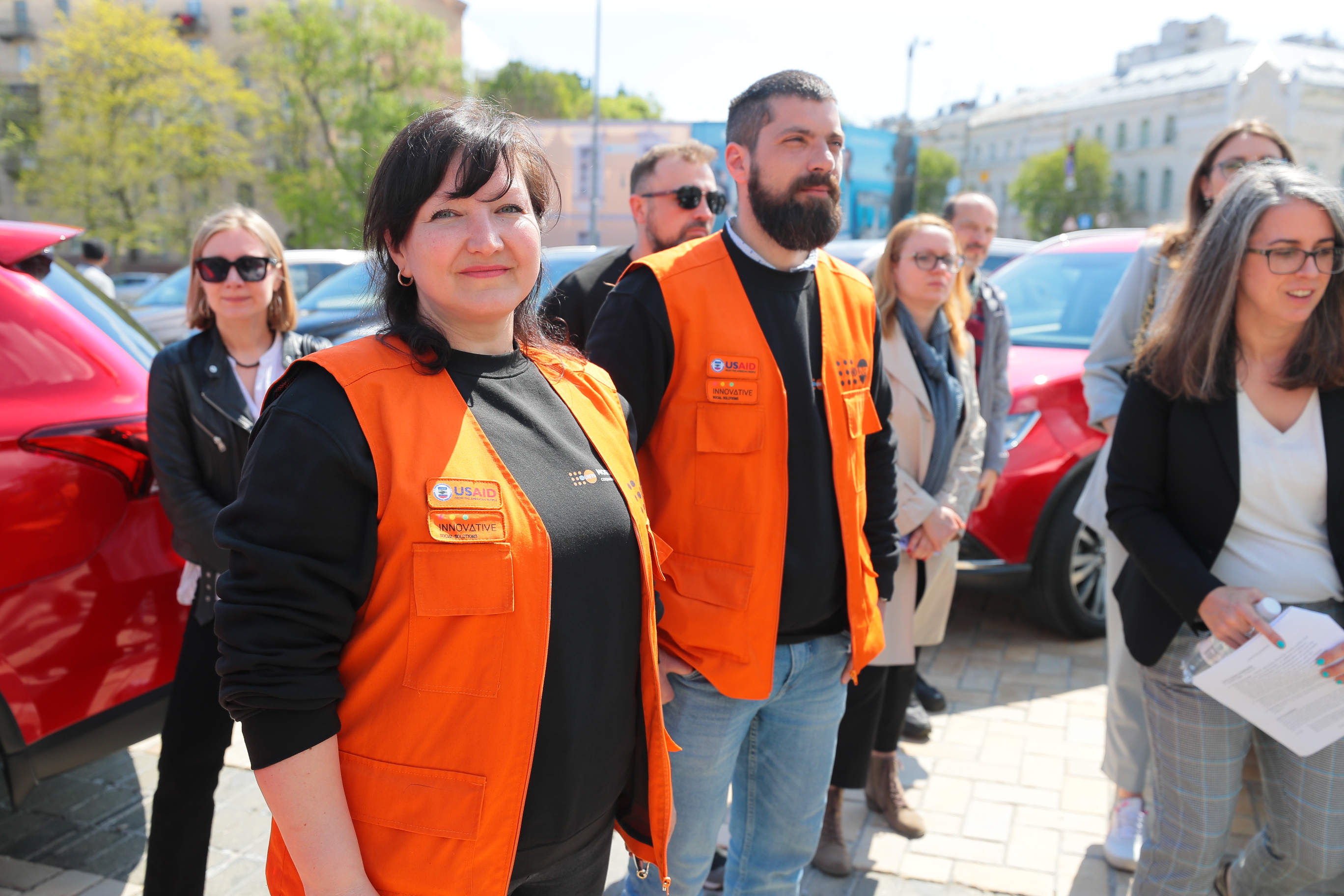
"The war showed us how important it is to be mobile and to act together so that our help reaches those who need it in a timely manner. Our task in supporting survivors of domestic violence is to ensure detection of such cases, rapid response, shelter and rehabilitation of survivors. To do this, we combine resources from the state to create and support such services, and help from international organizations. Providing mobile teams with road transport will allow them to arrive where they are needed as quickly as possible. The state, in its turn, this year directs 175 million UAH to support communities in providing professional assistance to survivors of violence, including conflict-related violence," said the Minister of Social Policy of Ukraine, Oksana Zholnovych.
"Kyiv has been implementing joint projects with the UNFPA in Ukraine since 2019, and this cooperation always shows its effectiveness. In August, we jointly launched the first psychosocial support mobile teams and saw their effectiveness from the first days. The importance of this service lies in its availability and comprehensiveness. We are very grateful to our partners for their systematic help in building an effective system of immediate response and prevention of domestic violence," said Maryna Honda, Deputy Head of the Kyiv City State Administration.
"One of the conditions for the effective work of the psychosocial mobile team is its mobility and the survivor-oriented approach. That is why it is extremely important to get modern and powerful cars for the mobile teams of the Mykolaiv region. Timely provision of targeted social and psychological assistance is a guarantee of the mental health of the residents of the region," said the Director of the Department of Social Protection of the Population of the Mykolaiv Regional State Administration, Oksana Yelchiyeva.
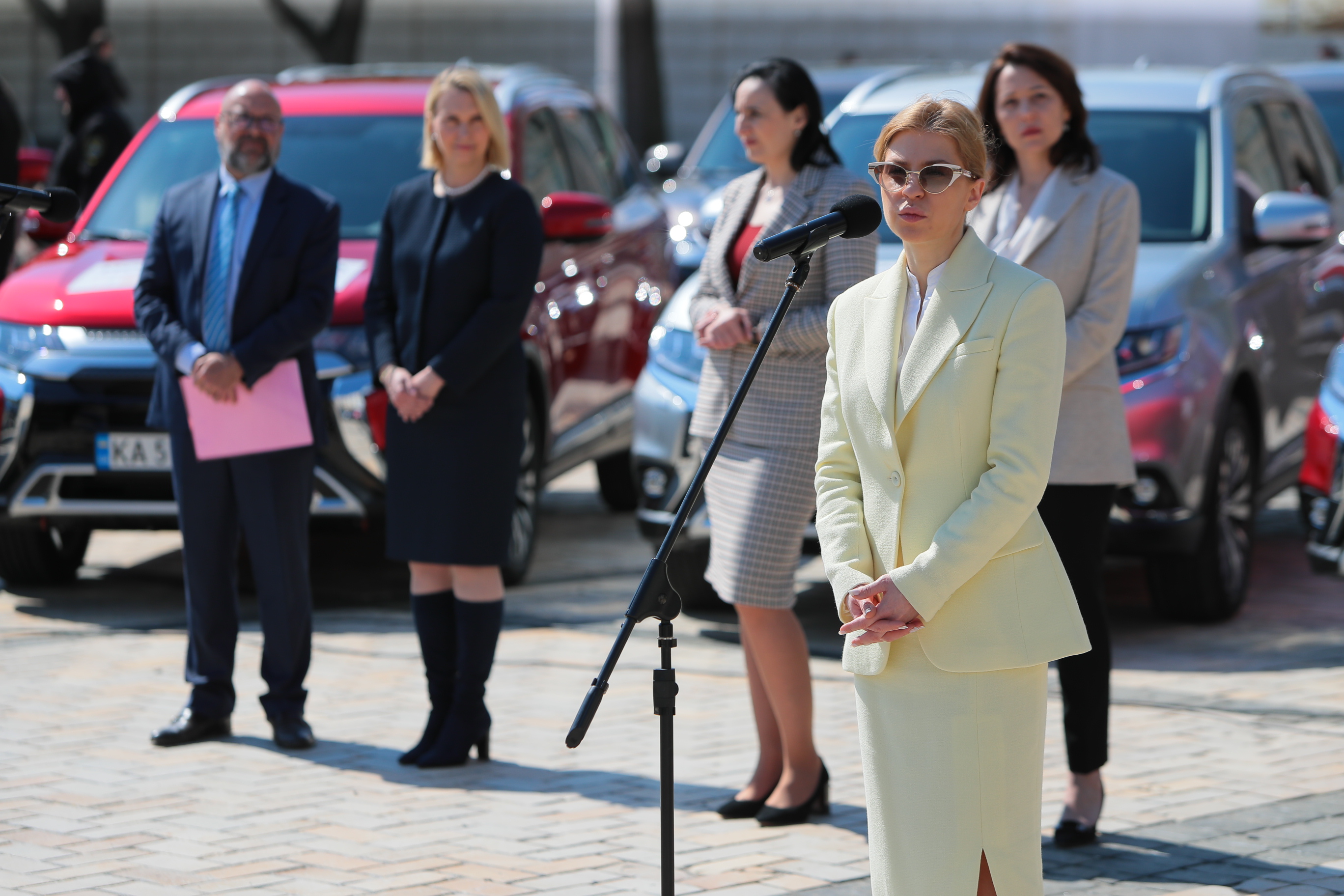
Mobile teams work with the support of UNFPA, the United Nations Population Fund, in coordination with the Office of the Deputy Prime Minister for European and Euro-Atlantic Integration and the Ministry of Social Policy of Ukraine.
The services of mobile teams are provided thanks to the financial support of the governments of Great Britain, Canada and the United States (USAID Bureau of Humanitarian Assistance), the Humanitarian Fund for Ukraine (UHF) and within the framework of the UN Program for Reconstruction and Peacebuilding, financed by the European Union.
For reference
Cases of domestic and gender-based violence increase during war. Women especially suffer from it. According to available information, every fifth woman survived one or another form of violence.
Photos: Andrii Krepkih and Yan Dobronosov

